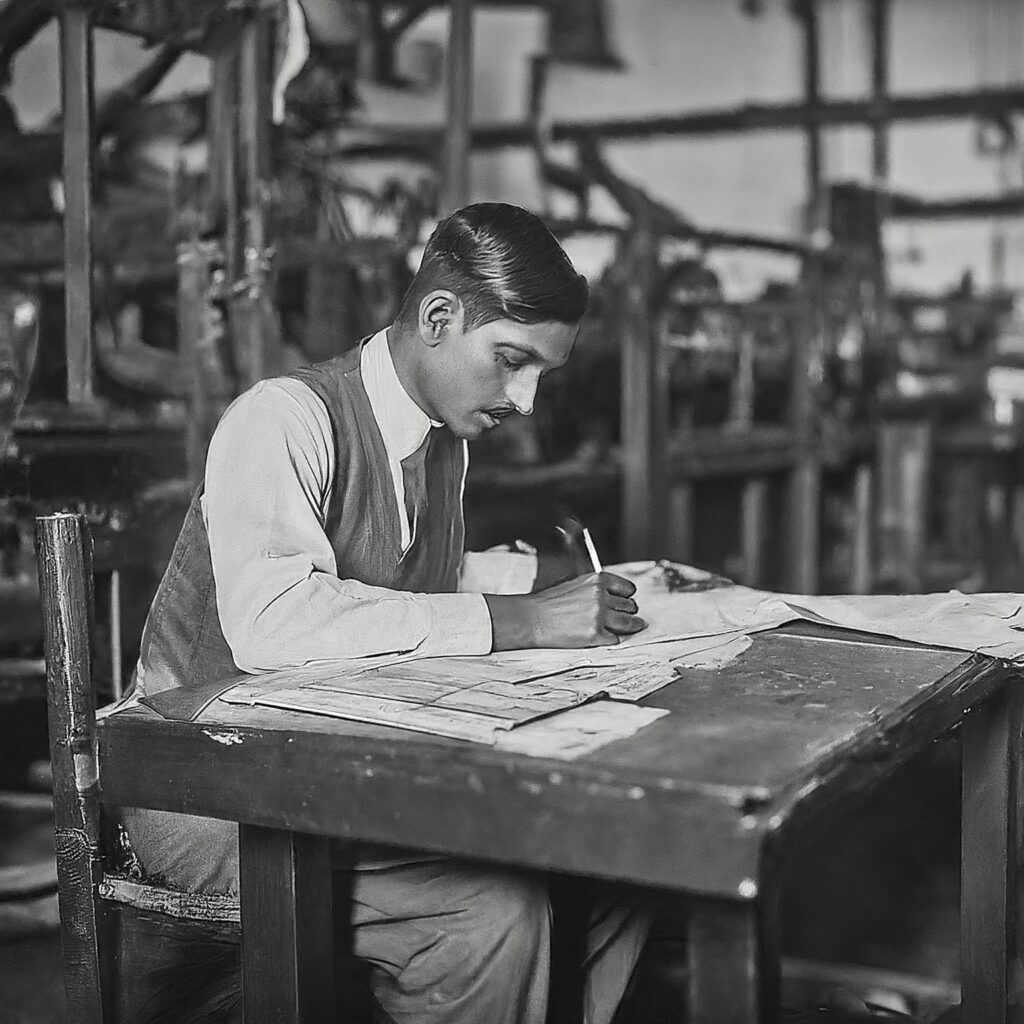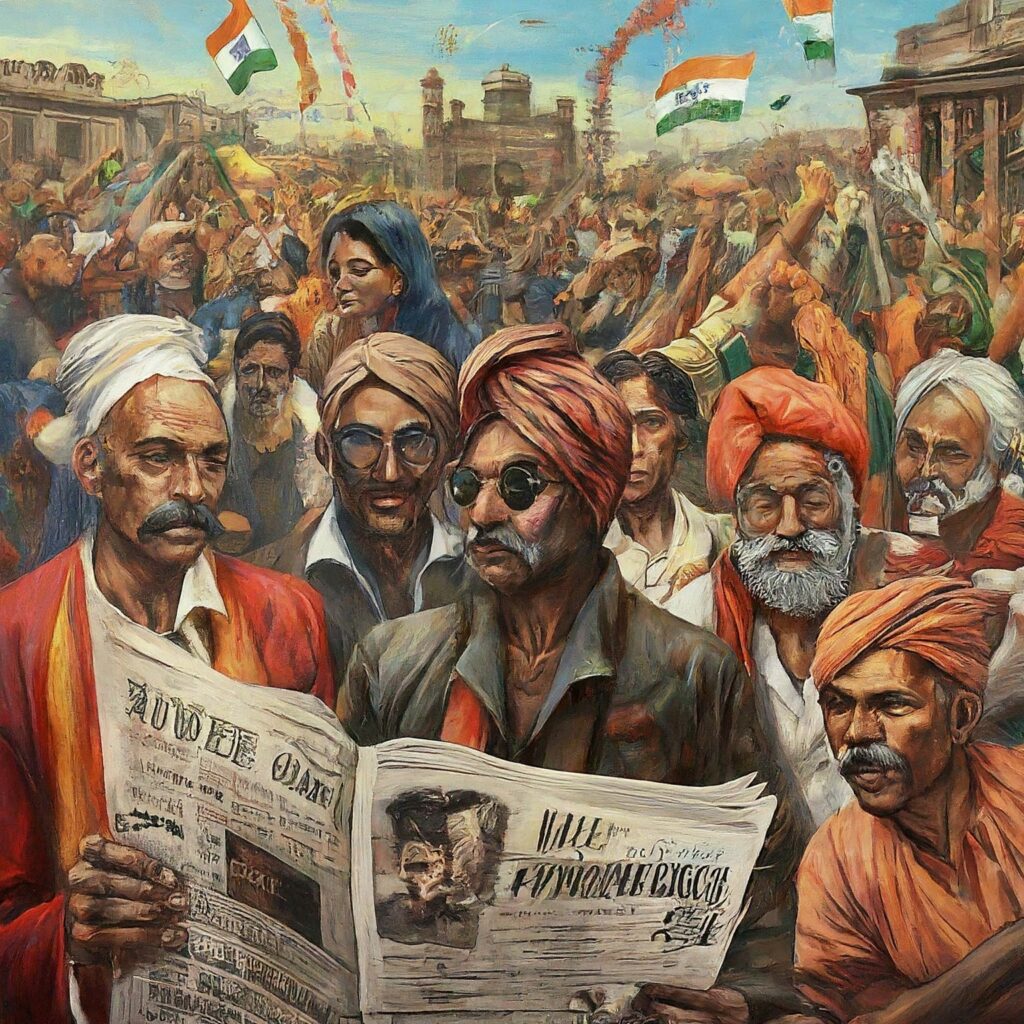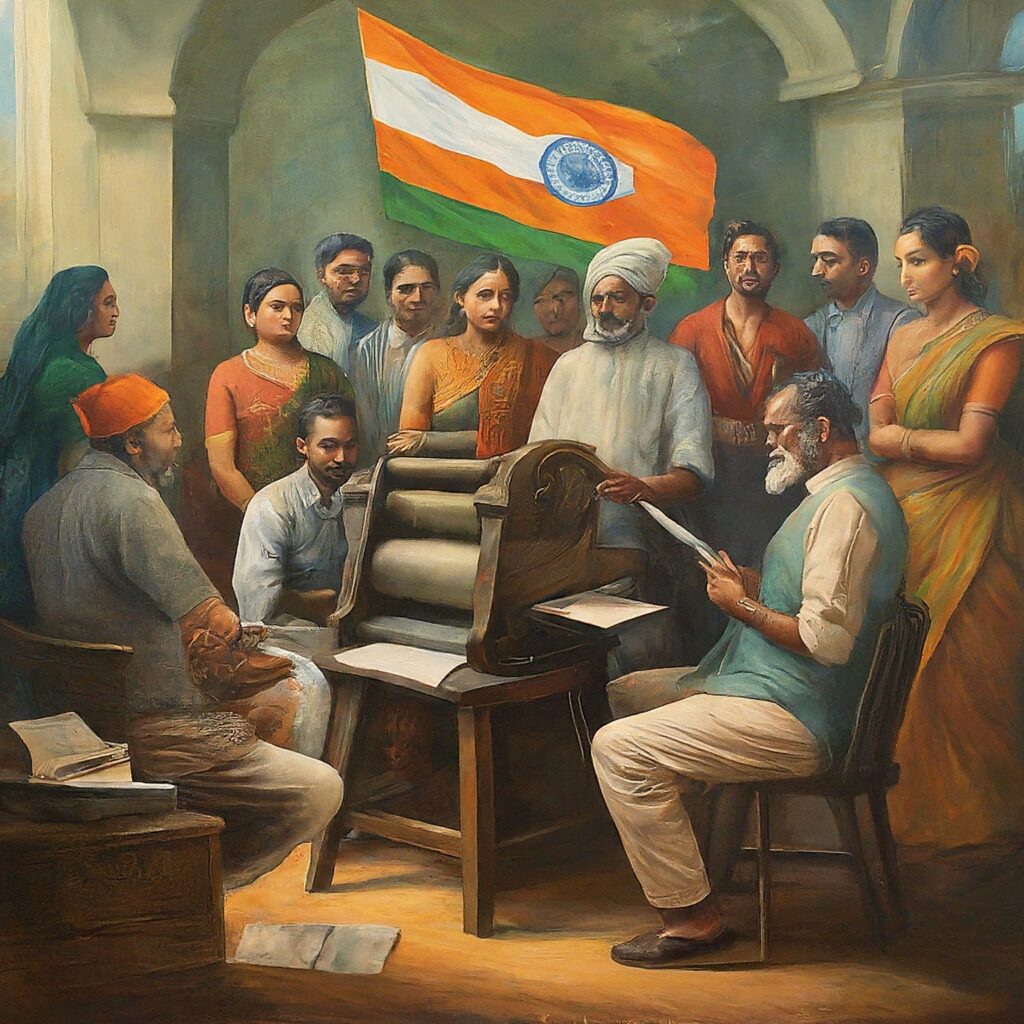The press played a significant and multifaceted role in the Indian freedom movement, which ultimately led to India’s independence in 1947. The press served as a powerful tool for mobilizing public opinion, spreading awareness, and fostering a sense of unity among the masses. Its impact was crucial in galvanizing the movement and influencing the course of events during this period.

Key roles performed by the press in the Indian freedom movement:
Dissemination of information: The press played a crucial role in spreading information about various aspects of the freedom movement, including the actions of freedom fighters, oppressive measures by the colonial government, and the progress and setbacks of the movement, thereby keeping the populace informed and engaged.

Raising awareness and consciousness: Newspapers and magazines were instrumental in raising political and social awareness among the masses by publishing articles, editorials, and letters discussing the injustices of colonial rule and advocating for self-governance, thereby shaping the political consciousness of the people and inspiring action against British rule.
Shaping public opinion: The press wielded considerable influence in shaping public opinion by highlighting the importance of nationalism, advocating for unity among diverse communities, and encouraging active participation in the struggle for independence.

Uniting diverse communities: Despite India’s diverse linguistic, cultural, and religious communities, the press acted as a unifying force by transcending regional and cultural barriers, promoting a common identity and a sense of belonging to the larger Indian nation.
Criticizing colonial policies: Fearlessly, the press criticized the exploitative policies of the British government, exposing corruption, economic exploitation, and discriminatory laws, further fueling public discontent with British rule.
Mobilizing protests and movements: The press often played a pivotal role in mobilizing protests and movements by urging people to join protests, strikes, and civil disobedience campaigns in response to incidents of injustice or oppression.
Providing a platform for leaders: Indian freedom fighters utilized newspapers and magazines as platforms to express their ideas and ideologies, with prominent leaders such as Mahatma Gandhi, Jawaharlal Nehru, Subhas Chandra Bose, and others regularly contributing articles and speeches to these publications, reaching a broader audience.
Fostering nationalism: The press played a crucial role in fostering a sense of nationalism and pride among Indians by propagating nationalist slogans, songs, and symbols through newspapers and magazines, aiding in the creation of a collective identity for the movement.
Promoting non-violent resistance: The philosophy of non-violent resistance, advocated by Mahatma Gandhi, was widely disseminated through the press, which highlighted the principles of satyagraha (non-violent resistance) and its effectiveness in challenging British authority.
Overall, the press in the Indian freedom movement acted as a catalyst for change by empowering the masses, exposing colonial injustices, and providing a platform for the voices of the oppressed. Its role in shaping public opinion and rallying people behind the cause of independence was invaluable to the eventual success of the freedom struggle. Thanks for reading article on Role of Press in Indian Freedom Movement